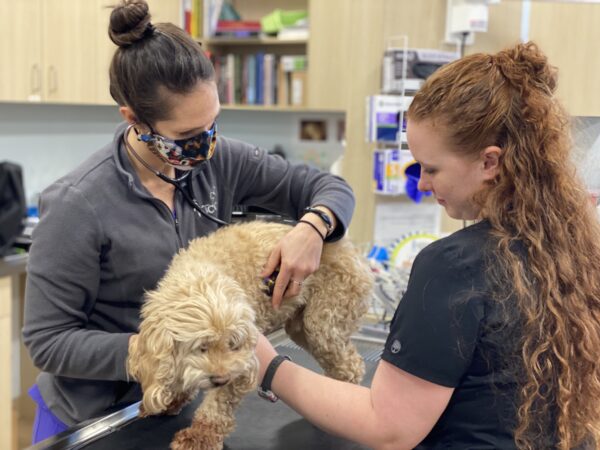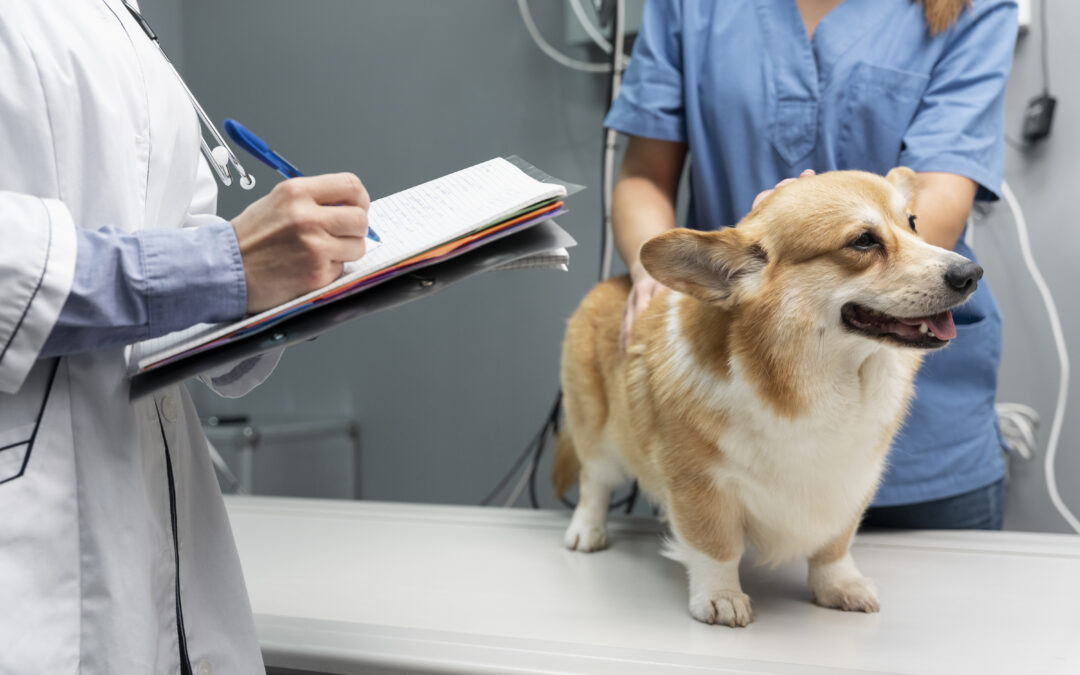By Katie Holmes, DVM, Veterinary Urgent Care Center
Bringing home your first puppy, or just a new addition to your clan, is one of the most exciting times for any pet parent. Puppies are a bundle of joy and sometimes trouble! The first few months of being a new pet parent can be filed with questions and concerns about what your dog may need when he/she goes to the vet.
Luckily, we are here to help!

DHPP: This vaccine prevents several viral infections, including Distemper and Parvovirus, which both can be fatal infections in unvaccinated or inadequately vaccinated canines. It is recommended to vaccinate puppies every three to four weeks (typically the series starts at eight weeks of age) until they are 16 weeks old. Subsequently, they will have a booster the following year.
Rabies: It is mandated by Massachusetts state law that all dogs and cats over the age of six months be currently vaccinated against Rabies. We can give the vaccine as early as 12 weeks to puppies, but we may wait to give this vaccine a few weeks later depending on your puppy’s size and what other vaccines he/she is due for.
Bordetella: This vaccine prevents a common cause of Canine Infectious Respiratory Syndrome, otherwise known as Kennel Cough. Most Bordetella vaccines are considered valid for one year, though many facilities require a Bordetella vaccine to be current within six months. If your puppy is going to have exposure to other dogs please make sure they are vaccinated!
Lyme: This vaccine prevents tick borne Lyme disease. Lyme disease can cause serious illness in dogs, including blood abnormalities, joint pain, and a severe kidney disease referred to as Protein-Losing Nephropathy. Year-round tick prevention is a very important component of Lyme Disease, but dogs who are vaccinated are much less likely to acquire the disease. This vaccine is generally given as a two-vaccine booster series, three to four weeks apart. Typically we wait until the above mentioned “core vaccines” are given. Following the initial series, this vaccine is recommended to be given annually.
Leptospirosis: This vaccine prevents the zoonotic bacterial disease, Leptospirosis, which typically is transmitted from exposure to contaminated puddles which have been exposed to the urine of infected wildlife. If the water isn’t moving, don’t let your dog drink it! This disease can cause liver and kidney failure, and prevention is much better than treatment. This vaccine is given initially as a two-vaccine booster series, three to four weeks apart. Following the initial series, this vaccine is recommended to be given annually.
Veterinary Urgent Care Center can be your provider of vaccinations for your puppy if you are having problems finding a primary care provider. You can schedule a visit at our Quincy, Plymouth or Easton locations to get your puppy on the right path! Just know, as an Urgent Care center if a more emergent case comes to our door when your puppy is scheduled for a visit, we may have to provide care to the sicker animal first.
We can’t wait to meet you and your new fur baby and know that a happy and healthy puppy will be a wonderful addition to your home.



